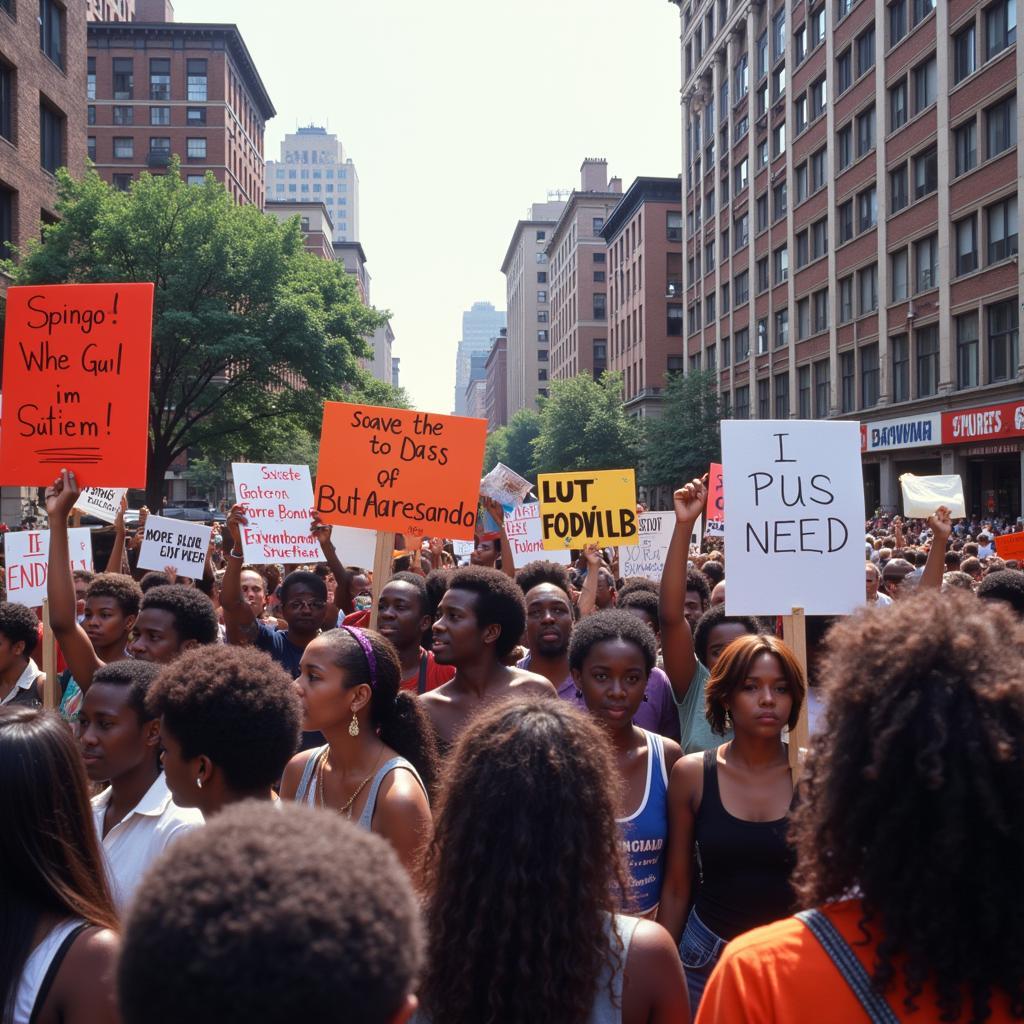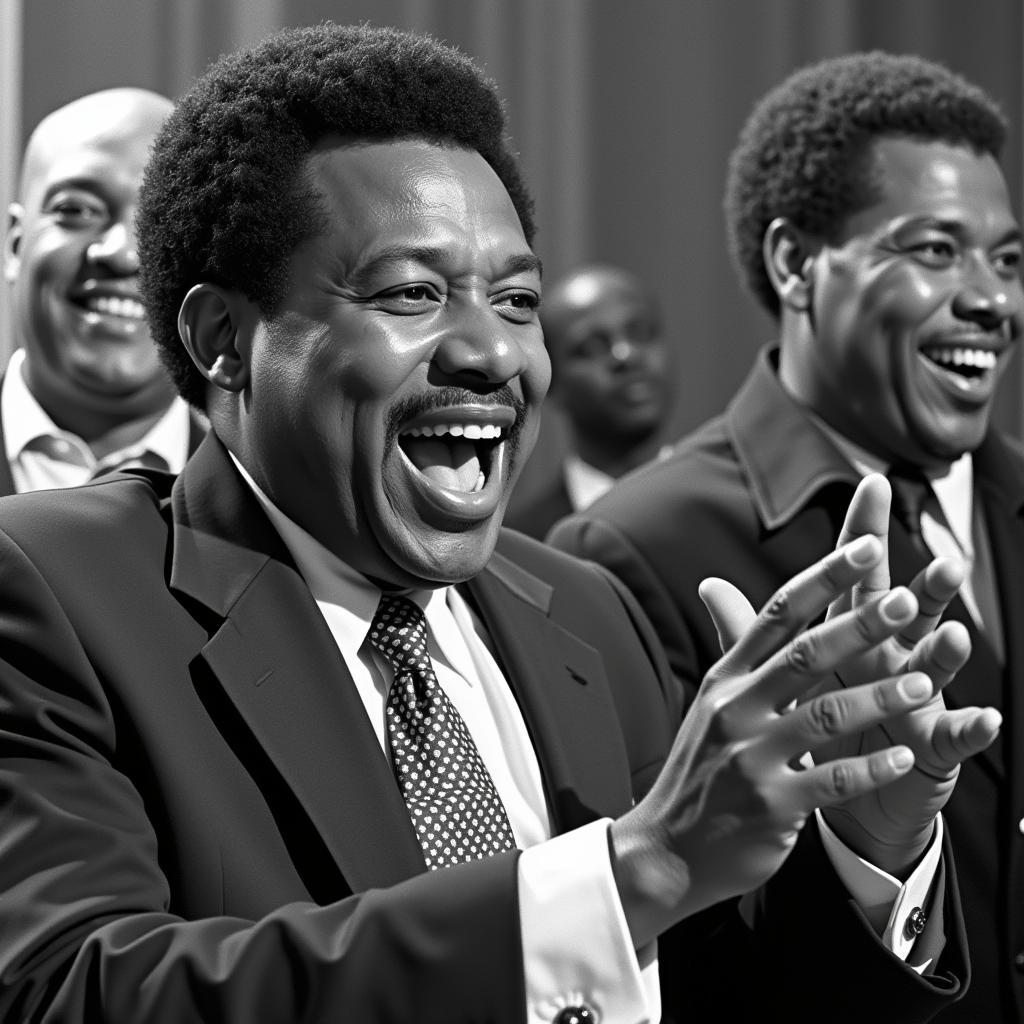African American History: Pivotal Moments of the 1980s
The 1980s marked a period of significant change and progress for African Americans, despite facing persistent challenges. This decade witnessed the rise of cultural icons, groundbreaking achievements, and continued struggles for social justice. From the political arena to the world of entertainment, African Americans left an indelible mark on the fabric of American society.
 African American political activism in the 1980s
African American political activism in the 1980s
The Fight for Equality Continues: Civil Rights and Political Representation
The Civil Rights Movement of the 1950s and 1960s paved the way for continued progress in the 1980s. African Americans continued to advocate for equal rights and opportunities, addressing issues such as police brutality, economic inequality, and access to quality education.
One significant development was the rise of Black politicians. The 1980s saw a surge in African Americans holding elected office at the local, state, and national levels. This increased representation provided a stronger voice for the Black community and helped shape policies that addressed their concerns. Harold Washington’s election as the first Black mayor of Chicago in 1983 and Jesse Jackson’s presidential campaigns in 1984 and 1988 were landmark events that demonstrated the growing political influence of African Americans.
 Harold Washington celebrates his election victory.
Harold Washington celebrates his election victory.
Cultural Revolution: Music, Art, and the Rise of Hip-Hop
The 1980s witnessed a cultural explosion that originated in Black communities across America. This era saw the birth and rise of hip-hop, a powerful cultural movement that combined music, dance, art, and fashion. Artists like Run-DMC, Salt-N-Pepa, and Public Enemy used their platform to address social issues, challenge stereotypes, and express the realities of urban life.
Beyond music, Black artists gained recognition in various creative fields. Visual artists like Jean-Michel Basquiat and Keith Haring rose to prominence, challenging traditional art forms and incorporating elements of street art and social commentary. African American models like Iman and Naomi Campbell broke barriers in the fashion industry, becoming global icons and redefining standards of beauty.
 The vibrancy of hip-hop culture in the 1980s
The vibrancy of hip-hop culture in the 1980s
Challenges and Triumphs: A Decade of Transformation
The 1980s was a decade of both challenges and triumphs for African Americans. The rise of crack cocaine devastated many Black communities, leading to increased crime, poverty, and social problems. The Reagan administration’s policies often exacerbated these issues, contributing to economic disparities and mass incarceration.
Despite these challenges, African Americans continued to make strides in various fields. The emergence of Black filmmakers like Spike Lee and John Singleton brought new perspectives and stories to the forefront of American cinema. African American comedy films gained popularity, providing both entertainment and social commentary.
A Legacy of Resilience and Progress
The 1980s stands as a pivotal decade in African American history, marked by continued struggles for equality, cultural innovation, and a spirit of resilience. The advancements made during this era, particularly in politics and culture, continue to shape the landscape of American society today.
FAQ
What were some key events in African American history during the 1980s?
Some key events included Harold Washington becoming the first Black mayor of Chicago, Jesse Jackson’s presidential campaigns, the rise of hip-hop culture, and increased representation of African Americans in various fields.
What were some challenges faced by African Americans in the 1980s?
The crack cocaine epidemic, economic disparities exacerbated by Reagan-era policies, and persistent racial discrimination remained significant challenges.
How did African American culture impact the 1980s?
The birth of hip-hop, the rise of Black filmmakers, and the success of African American models transformed the cultural landscape, challenging norms and influencing global trends.
Did the Civil Rights Movement continue to influence the 1980s?
Yes, the movement’s legacy fueled ongoing activism for social justice, economic equality, and political representation throughout the decade.
What is the significance of studying African American history in the 1980s?
Understanding this period provides valuable insights into the ongoing struggle for equality, the power of cultural expression, and the resilience of the African American community.
